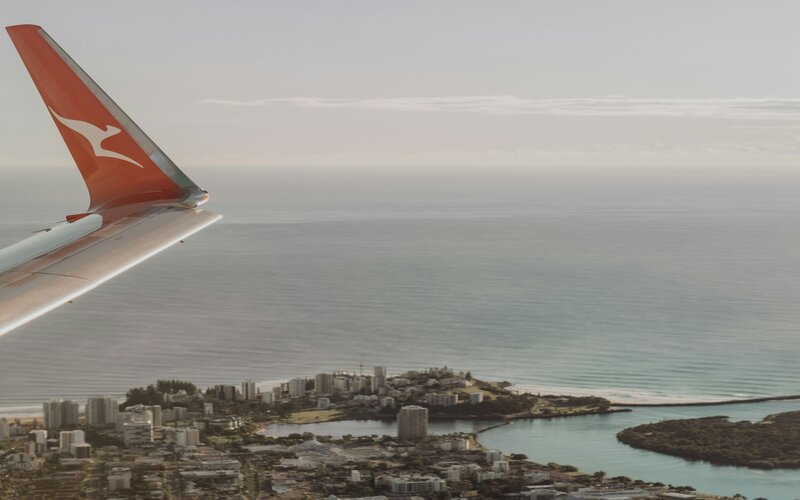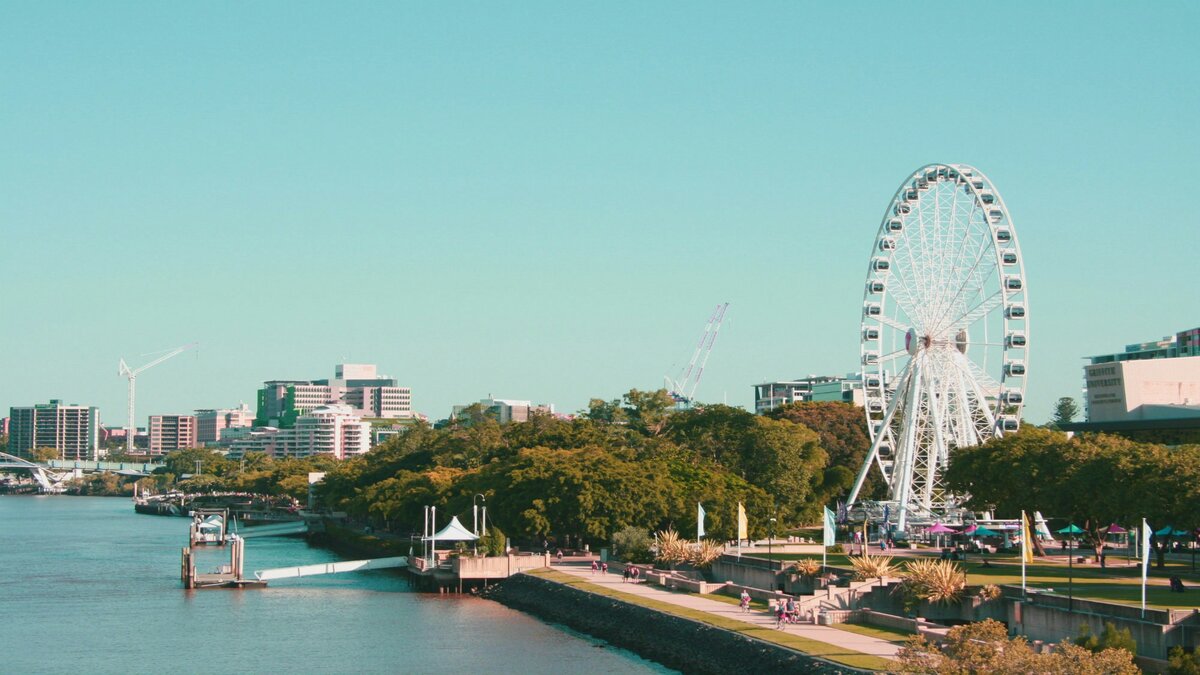The ‘land down under’ is one of the world’s immigration hotspots, with nearly a third of its resident population having been born overseas. And many arrivals are no doubt enticed to get involved in the Australian property market.
“The lifestyle is what’s most attractive,” founder and CEO of Cohen Handler and Luxe Listings Sydney star Simon Cohen said.
As a buyers agent, he facilitates property sales for people coming from all over, whether they be Aussie locals, recent arrivals, or expats living down under.
“Look at Sydney and Australia, we’re a market that’s never crashed, certainly in my lifetime,” he said. “And we’re a market in which prices of good properties have continued to grow.”
However, those without Australian citizenship or permanent residency typically have to jump through many additional hoops when purchasing property in Australia.
While one of those hoops might be receiving a bank’s tick of approval, there are many others a person wanting to buy property in Australia should know about.
Can you buy Australian property as a non-resident?
In Australia, non-residents or those holding a temporary visa can purchase property. However, they have to abide by strict conditions and will likely be classed as a foreign investor.
Firstly, they will need to apply for foreign investment approval. That is, unless they’re purchasing from a property developer that has pre-emptively applied for, and been granted, approval on a buyer’s behalf. There is a fee charged for all foreign investment applications.
Secondly, non-residents can only purchase new dwellings or vacant land on which a new dwelling will be constructed within four years. Though, there are a few exceptions to this rule, which will be discussed in a moment.
The Australian Government believes that only allowing foreign investors to buy new homes will increase housing supply, create construction jobs, and increase government revenues.
Those buying property in Australia as a non-resident will also need to pay an annual vacancy fee if their dwelling isn’t occupied or genuinely available for rent for at least half of every year. Whether that is or isn’t the case, a foreign investor will still have to lodge a vacancy fee return each year for each property purchased after May 2017 or without a foreign investment application.
It’s also worth noting that a non-resident buying alongside a spouse who is an Australian citizen or permanent resident might not need foreign investment approval. If you’re not a fan of paperwork, that could be a huge plus.
When can expats or temporary visa holders buy established houses?
There are three instances in which a person who isn’t an Australian citizen or permanent resident can buy an existing house.
The first is if they plan to live in it. If a person holds a temporary visa allowing them to live in Australia for longer than 12 months, they can purchase an existing property to live in for the duration of their stay. However, they will be forced to sell up within three months of them leaving the country permanently. On a positive note, that condition goes out the window if they become an Australian citizen or permanent resident.
The second way a foreign investor can buy established property in Australia is if they are planning to redevelop it and the redevelopment will increase the nation’s housing stock. For instance, it might be possible for a non-resident to buy a house with the intent to knock it down and build a block of units on the plot.
Finally, a foreign investor can buy an established Australian dwelling if they are a foreign-controlled company purchasing a dwelling to house staff based in Australia. Though, this will only be allowed in limited circumstances.
Of course, whether a person can buy a house and whether they can secure a home loan are two different questions.
Home loans for temporary visa holders and non-residents
If you're not an Australian citizen or permanent resident, that doesn’t mean you’re automatically ineligible for a home loan. In fact, you might find you have access to the same interest rates available to everyone else.
Australian lenders will typically consider lending to those on skilled, business, investment, and partner visas, according to Professional Home Loans director and mortgage broker Tom Luu.
A select few will also lend to those holding graduate visas or parents buying property for their children to live in while they study in Australia.
“The main misconception is that people who are not Australian or who are non-residents are treated differently or pay a higher [interest] rate,” said Mr Luu.
“Temporary visa holders, permanent residents, and Australian expats get the same rates as local purchasers.”
However, those who are self-employed or earning an income in a currency other than the Australian dollar might attract higher interest rates or certain fees. They might also find their income is ‘shaded’ by a lender, meaning a portion isn’t factored into serviceability tests.
“Lenders do not limit a person’s borrowing capacity if they are on a temporary visa,” Mr Luu said.
“As long as they are living and working in Australia and earning in Australian dollars, they will treat them the same as an Australian citizen or permanent resident.
“The only time the banks will limit a person’s borrowing capacity is when they are earning foreign income.
“[In such cases] they will typically shade their income by 20%. In saying that, some lenders will shade by 10%, whereas others will shade by 40%. It really depends on the lender's policies.
“Their policy will also determine whether Australian tax margins are used or whether the local tax rate is used.
“For example, the tax rates in Singapore, United Arab Emirates, and Switzerland are much lower than those of Australia. Some lenders know this and will allow the local tax rate to be used.”
The final consideration worth contemplating if you’re looking for an Australian home loan is how much of a deposit you’ll need to put down.
What kind of visa a person holds will determine how large of a deposit a borrower will need to provide. That’s largely because Australian lenders often don’t allow non-residents access to lenders mortgage insurance (LMI).
“Depending on a person’s visa, lenders will lend up to 95% [of a property’s value]. However, in some cases, the maximum is an 80% [loan-to-value ratio].”
Home loans for 820/801 or 309/100 visa holders buying with a spouse
Perhaps one of the more certain ways an expat or temporary visa holder can get a home loan in Australia might be buying a property alongside an Australian citizen or permanent resident.
If that’s the situation you find yourself in, it could be worth reaching out to a bank or lender to discuss your options.
Buying property in Australia? Extra costs you should know about
Australia has a few key taxes that property buyers will want to know about before entering into a contract. Things like stamp duty, foreign duty, and the costs of foreign investment approval can come as a shock to those who aren’t aware they’ll be liable for such expenses.
That is to say, snapping up real estate in Australia isn’t always as simple as paying the asking price and moving in.
“Do your research and investigate what extra costs you’re going to be up for,” Mr Cohen said.
The first cost to be aware of is stamp duty. Stamp duty is a tax administered by states and territories, rather than the federal government. For that reason, how much a property buyer is liable to pay will depend on where they live. It will also likely depend on how much they spend to purchase their new home.
You can estimate how much you might be slugged by using Savings.com.au’s Stamp Duty Calculator.
The second is foreign duty. Foreign duty is also administered by states and territories and the nitty-gritty details of the tax can vary across the country. Typically, it's around 7% to 8% of the value of the property. So, buying a $700,000 house could see an expat or temporary visa holder forking out $56,000 in foreign duty, plus stamp duty. Ouch.
Some states will exempt certain buyers from paying foreign duty. For instance, NSW will exempt a buyer if they hold a retirement visa (subclass 405 or 410) or a partner visa (subclass 309 or 820) and were in Australia for 200 days out of the year prior to their purchase.
If you’re unsure of the taxes associated with your planned property purchase, it might be worthwhile to reach out to an Australian tax professional, solicitor, or mortgage broker.
Do the big four banks provide home loans for expats or temporary visa holders?
Good news for temporary visa holders and expats: Many of Australia’s largest banks will consider lending to non-residents and foreign citizens.
“Subject to various restrictions, ANZ does provide home loans to people living in Australia who aren’t Australian citizens or permanent residents across a variety of visa classes,” an ANZ spokesperson told Savings.com.au.
“This includes the 309/820 subclasses.”
NAB said there are a number of factors to consider when seeking an Australian home loan as a temporary visa holder or non-resident. It suggested those considering doing so reach out to it to discuss their options.
CommBank and Westpac were also contacted for comment but didn’t respond in time for publication.
Can you get a home loan if you’re an expat or don’t live in Australia?
It can be tricky to take out a home loan for an Australian property if you’re living outside of the country. Fortunately, there are loan products designed specifically for Aussie expats.
Take loans.com.au’s Ex-Pat Home Loan, for instance. It offers expats the ability to borrow up to $1.5 million to purchase a house in Australia with a deposit of 20% or more.
“We know that one thing most Aussies living overseas have in common is that they plan to return to Australia in the future,” loans.com.au managing director Marie Mortimer told Savings.com.au.

“In recent years, overseas Australians have been underserviced by home lenders because a number of lenders pulled out of the segment.
“Expat lending also tends to be a little bit more complicated so some mortgage brokers steer clear of it.
“However, this doesn't affect us because borrowers just come to us directly and we work our simple application process together.
“Our target market is Australians who are living overseas and want to buy property in Australia.”
The non-bank lender offers expat loans with a variable interest rate to investors living overseas, with the option to make principal and interest repayments or interest-only repayments.
In the interests of full disclosure, Savings.com.au and loans.com.au are both associates of the Firstmac Group.
Savings.com.au’s two cents
It might seem like a difficult feat to secure a home loan as an expat, a non-resident, or a temporary visa holder but, with a little legwork, it's an incredibly feasible endeavour.
There are a number of Aussie lenders out there who provide home loans to would-be homeowners who don’t fit the typical mould.
If you’re unsure of your options, it could be worth reaching out to a lender or mortgage broker to work out the best course of action for you and your financial position.
Advertisement
Buying a home or looking to refinance? The table below features home loans with some of the lowest interest rates on the market for owner occupiers.
| Lender | Home Loan | Interest Rate | Comparison Rate* | Monthly Repayment | Repayment type | Rate Type | Offset | Redraw | Ongoing Fees | Upfront Fees | Max LVR | Lump Sum Repayment | Extra Repayments | Split Loan Option | Tags | Features | Link | Compare | Promoted Product | Disclosure |
|---|---|---|---|---|---|---|---|---|---|---|---|---|---|---|---|---|---|---|---|---|
5.54% p.a. | 5.58% p.a. | $2,852 | Principal & Interest | Variable | $0 | $530 | 90% |
| Promoted | Disclosure | ||||||||||
5.49% p.a. | 5.40% p.a. | $2,836 | Principal & Interest | Variable | $0 | $0 | 80% |
| Promoted | Disclosure | ||||||||||
5.64% p.a. | 5.89% p.a. | $2,883 | Principal & Interest | Variable | $250 | $250 | 60% |
| Promoted | Disclosure | ||||||||||
5.64% p.a. | 5.89% p.a. | $2,883 | Principal & Interest | Variable | $248 | $350 | 60% |
| Disclosure |
Image by Josh Withers on Unsplash.

Ready, Set, Buy!
Learn everything you need to know about buying property – from choosing the right property and home loan, to the purchasing process, tips to save money and more!
With bonus Q&A sheet and Crossword!







 Denise Raward
Denise Raward
 Harry O'Sullivan
Harry O'Sullivan

 Aaron Bell
Aaron Bell
 Harrison Astbury
Harrison Astbury

